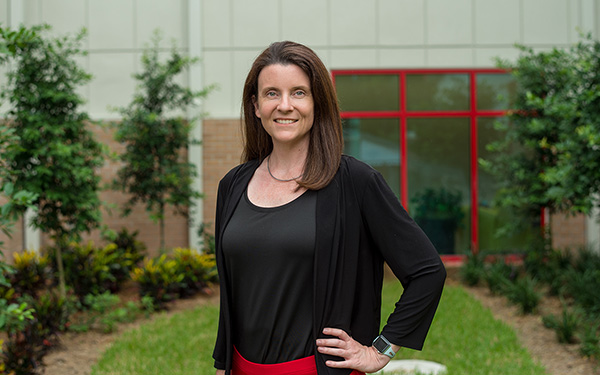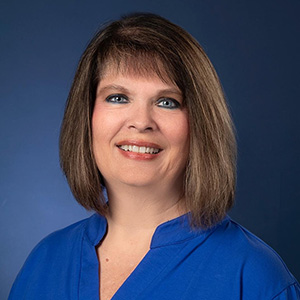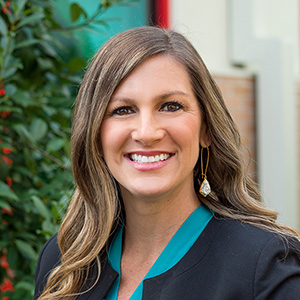The Doctor of Education Program is for Educators in Every Sector
The Doctor of Education (EdD) degree prepares individuals for positions in administration, policy development, college or university teaching, and research. The degree includes broad topics covering curriculum, assessment and accountability, professional development, research driven decision making and policy analysis through offerings in face-to-face and online course for readiness to complete a dissertation.
Individuals with academic preparation from diverse disciplines, many with a master's degree outside the field of education, are offered the opportunity to develop skills and experience to lead and implement change through contextualized learning and research excellence. Experienced faculty guide students, preparing them to contribute a wealth of new knowledge and influence developments within their organizations and communities.
Top Reasons
Research-Focused
The curriculum provides students the knowledge, skills, and opportunities to engage in and contribute to academic conversations through research.
Involved Faculty
Composed of professors and scholars whose research and practical experience delve straight into today’s most complex and important issues in education.
Diverse Students
With a variety of graduate degrees from social sciences, natural sciences, business, fine arts, humanities, and education, students entering the program may focus their research on adult learners, higher education, and nonprofit organizations.
Cohort Model
Students build strong collaborative relationships through their coursework by taking courses with students in their cohort.
Campus Community
Doctoral students are part of the larger ÅÝܽ¶ÌÊÓƵ Southern campus community and have full access to the Roux Library, Nina B. Hollis Wellness Center, athletic events, and fine arts performances. Additionally, students engage in research marathon events that support doctoral studies through focused engagement with librarians, faculty, staff, and students across cohorts.
Nationally Ranked
The Doctor of Education program is nationally ranked by U.S. News and World Report.
Meet Our Mocs
Dr. Dionna Doss
Troy Hersberger
Dr. Sara Kane
Monique Mavour
Dr. Christopher Rudolph
Dr. Amber Wakeman
The Passion to Get Ahead
Dr. Howard Hepburn '20, Instructional Superintendent, School District of Palm Beach County, explains why ÅÝܽ¶ÌÊÓƵ Southern was the right school for him to advance his passion for education and professional goals.

Featured Faculty
Melanie Fowler
Program Details
Admission Requirements
- An earned baccalaureate degree from a regionally accredited institution of higher education as verified by an official transcript from the conferring institution
- An earned graduate degree from a regionally accredited institution of higher education as verified by an official transcript from the conferring institution
- Earned grade point average of 3.0 in accredited master’s degree program*
- Applicants to ÅÝܽ¶ÌÊÓƵ's Doctor of Education program are required to submit a personal statement as part of their application materials. In no more than 500 words, students should address the following in their personal statement:
- How will the pursuit of a doctoral degree help you in achieving your personal and professional goals?
- Why are you pursuing a doctoral degree at ÅÝܽ¶ÌÊÓƵ?
- Describe any related research experience, professional presentations, or major projects you have completed
- Recommendation Form or Letter of Reference
- Current Résumé
- Official Graduate Record Exam (GRE) scores taken within last five years**
- Personal Interview
* If you do not have at least a 3.0 cumulative GPA from your graduate degree, please submit official Graduate Record Exam (GRE) score.
** If you have at least a 3.0 cumulative GPA from your graduate degree, then you meet the requirements for a Graduate Record Exam (GRE) exemption.
Additional International Requirements
- Official Translated Transcripts With Course By Course Evaluation**
- Bank Letter Verifying Funds of Sponsor***
- Sponsor's Guarantee Form
- Valid Passport
- Official TOEFL/IELTS Score****
** (discount available), , , or or another similar approved transcript evaluation agency.
*** A bank letter is a written statement on bank letterhead and signed by a bank official.
**** Must have completed an English language training program or at least one year at an English speaking institution to waive the TOEFL/IELTS testing requirement.
Course Delivery
Hybrid
A combination of online and in-class courses are offered to meet the needs of your busy schedule. By enrolling in our EdD full-time, you will complete all of your coursework in two years, plus a dissertation.
Curriculum
| EDU 7005 | Ways of Knowing: Research in Education |
| EDU 7020 | Curriculum, Learning and Instruction |
| EDU 7040 | Organizational Theory and Behavior |
| EDU 7050 | Educational Politics, Policy and Current Issues |
| EDU 7065 | Legal Issues in Education |
| EDU 7070 | Curriculum Analysis |
| EDU 7085 | Finance and Budgeting |
| EDU 7090 | Quantitative Analysis |
| EDU 7093 | Advanced Quantitative Analysis |
| EDU 7120 | Qualitative Methods of Inquiry |
| EDU 7123 | Advanced Applications of Qualitative Research Methods |
| EDU 7135 | Planning and Evaluation in Education |
| EDU 7138 | Dissertation Seminar A (2-credit hour course) |
| EDU 7139 | Dissertation Seminar B (1-credit hour course) |
| EDU 7140 | Dissertation (9 hours) |
Program Costs
2024-2025
| Base Required Fees | Cost |
| Tuition Per Credit Hour | $550 |
| Technology fee per semester is based on credit hours enrolled | $25 to $100 |
$250 Non-Refundable Enrollment Deposit (Upon acceptance and applied toward your first semester tuition balance)
Related Materials
What is the program delivery?
Our program uses a cohort model wherein students move through the program with the same group of students throughout the two years of coursework. Courses are delivered via a hybrid model where a typical semester is comprised of one face-to-face class typically meeting every other Saturday (8:00 A.M. to 5:00 P.M.) and one online class each semester. Student’s first summer term is the only term that students enroll simultaneously in two in-person courses. This allows the opportunity to make meaningful connections with other students in your cohort. One class meets on alternate Saturdays (8:00 A.M. to 5:00 P.M.) and the other meets on alternate Mondays and Wednesdays (5:00 P.M. to 9:00 P.M.).
What are the hours of the Saturday classes?
Classes are scheduled every other Saturday in the Fall and Spring from 8:00 AM to 5:00 PM. In the Summer, classes are 8:00 AM to 5:00 PM over seven Saturdays for during the 12-week C term.
How many classes is considered full time?
Students are considered to be full-time when taking 8 credits a semester at the doctoral level.
When does the cohort start?
A new cohort begins every summer, but students may join a cohort in the fall and spring terms as well.
Is financial aid available?
Students seeking financial aid should complete the FAFSA to determine eligibility.
Program Contact
 Lori Rakes, Ph.D.
Lori Rakes, Ph.D.
Dean of Education
Nina B. Hollis Endowed Chair of Education
Associate Professor of Education
Carol J. Barnett / Curry Education Office - 113
863.680.4172




